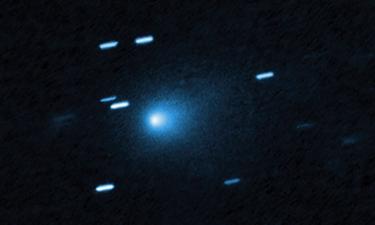It is quite possible to conceive and give birth to a child in space
It is quite possible to conceive, bear and give birth to a healthy child during a space flight. An expert of the Russian Institute of Medical Sciences and Biology Lyubov Serova expressed such an opinion in the interview with RIA Novosti.
"Of course, not every woman is capable of such a feat - she has to be absolutely healthy and in an excellent physical shape. However, from a medical standpoint it is entirely possible," she underlined.
"The pregnancy period of a "space-Mom" is somewhat comparable to a pregnancy period of a woman practicing extreme sports who decided to conceive a child during a high-altitude expedition," says Mrs. Serova.
According to the expert, the first embryological experiments have been conducted on white rats. In 1983, the Soviet Union launched a bio-satellite Kosmos-1514 with a pregnant rat on board. "The duration of pregnancy among rats is only 22 days, and we had to deliver the offspring upon the rat's return to Earth," clarified Mrs. Serova.
Experts did not discover any serious pathology in "space-born" rats. However, they were thinner and weaker than Earth-born rats and for a while lagged behind their congeners in mental development. The situation with their mother was worse - during a five-and-a-half-day flight, the rat lost almost a quarter of its weight, and doctors noticed some hormonal and endocrine system changes in its body. "I even wept when I saw the shape the rat was in upon the return, but she fought it through and even delivered a rather decent offspring," recalls Mrs. Serova.
On different occasions, bio-satellites carried tritons, frogs, and even pet fish into space. They all had some problems with their development, but quickly recovered upon the return to Earth. "Positive experience accumulated during numerous embryological experiments on animals and amphibious organisms give us hope that one day we will welcome the first human "space-Mom" with a bouquet of flowers," says Mrs. Serova.
Subscribe to Pravda.Ru Telegram channel, Facebook, RSS!





